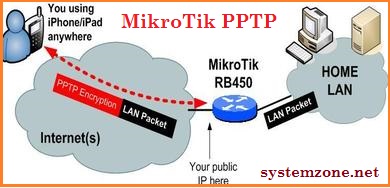Proxy Server Performance Tuning Maximizing Efficiency With MikroTik
 Hey there, fam! Today, I wanted to talk to y'all about proxies.
Hey there, fam! Today, I wanted to talk to y'all about proxies.
Now, I know some of y'all might be thinkin', "What the heck are proxies?" Don't worry, I'm here to break it down for ya.
Proxies are basically a way to access the internet through a different IP address than your own. Why would you want to do that, you ask? Well, there are a few reasons.
First off, using a proxy can help protect your privacy online. When you browse the internet without a proxy, your IP address is exposed. That means that anyone who wants to can track your online activity. By using a proxy, you can mask your IP address and keep your online activity private.
Secondly, proxies can be used to access content that is restricted in your area. For example, let's say you live in a country where certain websites are blocked. By using a proxy, you could access those websites as if you were in a different location where the website is accessible.
Now, there are different types of proxies out there. Some are free, some are paid. Some are fast, some are slow. Some are more secure than others. Ultimately, the type of proxy you choose will depend on your individual needs.
Here are a few things to keep in mind when choosing a proxy:
- Security: Look for a proxy that offers encryption to keep your online activity safe from prying eyes.
- Speed: Make sure the proxy you choose is fast enough to allow for smooth browsing.
- Location: Depending on why you're using the proxy, you'll want to make sure it's located in a country that allows access to the content you're looking for.
Now let's talk about some of the different types of proxies out there.
Details
HTTP Proxies
HTTP proxies are the most common type of proxy. They're generally the fastest and easiest to use. However, they're not as secure as some of the other types of proxies out there.
SOCKS Proxies
SOCKS proxies are another popular option. They're slower than HTTP proxies, but they offer better security. SOCKS proxies are also able to handle all types of traffic, whereas HTTP proxies are only designed to handle web traffic.
Transparent Proxies
Transparent proxies are essentially a way to "bypass" proxies. They allow your ISP to continue tracking your online activity, but they can be useful for accessing websites that have been blocked by your ISP.
Elite Proxies
Elite proxies are the most secure type of proxy. They offer complete anonymity and are often used for more sensitive tasks, like accessing bank accounts or other secure sites.
Now that you know a bit about the different types of proxies, let's talk about some tips for using them:
Tips
- Choose your proxy carefully: Remember to consider factors like security and speed when choosing a proxy to use.
- Keep your proxy up-to-date: Like any piece of software, proxies can sometimes have vulnerabilities that need to be patched. Make sure you're running the latest version to help keep your online activity secure.
- Don't rely on proxies too heavily: While proxies can be useful, they're not foolproof. If you're doing something that requires a high level of security, it's best to use a VPN instead.
Finally, let's go over some FAQ about proxies:
FAQ
Q: Are proxies illegal?
A: No, using a proxy is not illegal. However, it's important to note that using a proxy to do illegal things (like engage in cybercrime) is, obviously, illegal.
Q: Can I use a proxy on my phone?
A: Yes, most proxies can be used on both desktop and mobile devices.
Q: Can a proxy make my internet faster?
A: It's possible that a proxy could make your internet faster, but it's not guaranteed. In some cases, a proxy could actually slow down your internet connection.
Q: Do I need to be tech-savvy to use a proxy?
A: Not necessarily. While there are more advanced ways to use proxies, like setting up your own proxy server, most people can simply download and use a proxy app or extension without any special knowledge.
Well, that's a wrap on my proxy knowledge! I hope y'all found this helpful. Stay safe out there on the interwebs, y'all!




Post a Comment for "Proxy Server Performance Tuning Maximizing Efficiency With MikroTik"